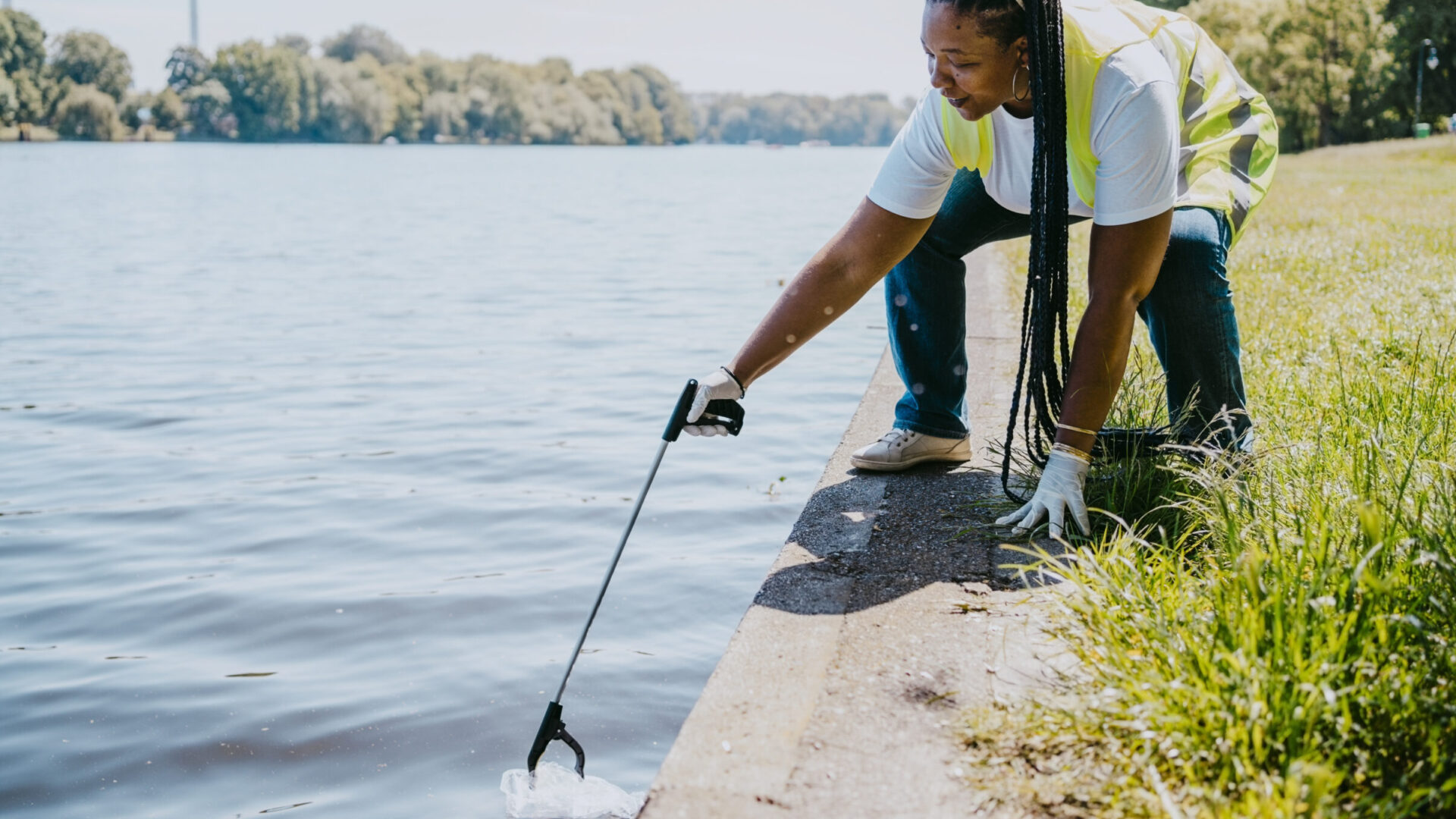
When it comes to climate change, the physical effects are typically what’s commonly discussed—like the changes in rainfall, the heat waves and droughts. However, when it comes to its impact on people rather than the environment, climate change affects everyone—but it has a particularly negative impact on the Black community. Here are just a few ways it does.
It exacerbates pre-existing health conditions that are common in Black people.
It’s no secret that African-Americans are typically at a higher risk for certain diseases and health complications, like asthma and sickle cell. There’s research to back it up, too. According to Pfizer, “Compared to their white counterparts, African Americans are generally at higher risk for heart diseases, stroke, cancer, asthma, influenza and pneumonia, diabetes, and HIV/AIDS, according to the Office of Minority Health, part of the Department for Health and Human Services.”
One of climate change’s worst effects is on the air we breathe. It significantly reduces air quality and air pollution directly contributes to climate change. Since African-Americans are disproportionately hit with respiratory conditions like asthma, climate change only exacerbates these health problems.
Aside from the health implications, a recent study found that Black communities (and other communities of color) are exposed to far more air pollution than they produce. So, we’re often paying for problems we had a small amount to do with creating. African-Americans in particular consume “56% excess exposure…relative to the exposure caused by their consumption”. According to the CDC, climate change worsens air quality because its “higher temperatures lead to an increase in allergens and harmful air pollutants.” As climate change worsens air quality, African-Americans are gradually being exposed to more and more air pollution, which is becoming increasingly unhealthy to breathe.
Here are 5 ways to get involved in climate activism from home.
The risk of pre-term delivery increases in Black expectant mothers.
In 2017, a Science Direct study that found Black, pregnant mothers were 15% more likely to deliver their child prematurely during a temperature increase of 10 degrees. When you compare this number to the average, which is 8.6%, you realize Black moms have yet another hurdle to overcome when giving birth. Also, the risk is even higher when the mother has pre-eclampsia (high blood pressure and fluid retention brought on by pregnancy), pre-existing high blood pressure, or diabetes.
When considering Black women who live in places known for extremely hot weather, like California for example, you realize how climate change is deeply intertwined with racial justice. California is consistently given to wildfires, which in turn pollute the air, tying back into our first point about poor air quality affecting our living conditions. Also, if the mom doesn’t have much income, she may not be able to afford a quality air conditioning system that would help curb the heat. So the increasing temperatures brought on by climate control are affecting those trying to usher in the next generation.
Natural disasters are much more devastating to poor, Black and POC neighborhoods.
Climate change has a substantial impact on hurricanes specifically. Through the increase of global temperatures, the world’s water is warmed, thereby expanding the size of the zone where hurricanes can form. Black communities are already more vulnerable to hurricanes and the floods that accompany them; according to the US Census, over 50% of African-Americans live in the South, where hurricanes continue to tear apart our communities at an alarming rate.
When Hurricane Katrina struck New Orleans in 2005, it was primarily Black communities and homes that were destroyed. According to Climate Signals, “The hardest hit areas in the New Orleans and Biloxi-Gulfport coastal regions were 46 percent Black and 21 percent poor compared to undamaged areas which were 26 percent Back and 15 percent poor.”
When natural disasters have ravaged Black neighborhoods, restoration efforts haven’t always been what they should be. Debris and decay surround the community, and they’re left with the knowledge that their safety was never truly a priority.